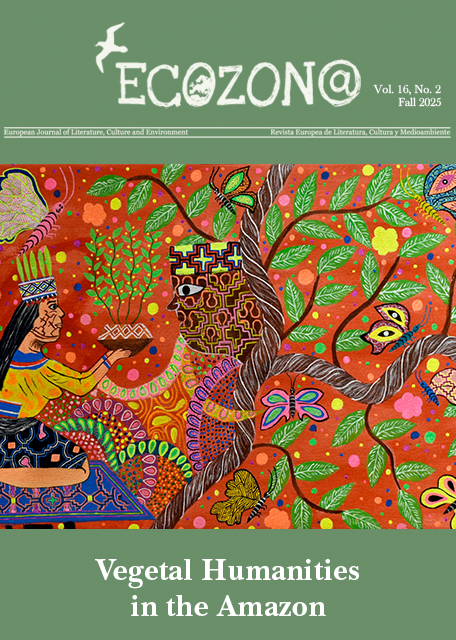Poems
DOI:
https://doi.org/10.37536/ECOZONA.2010.1.2.366Abstract
Hugh Dunkerley is Senior Lecturer at the University of Chichester, where he teaches both creative and critical courses. This year, he published his third book of poetry (Hare, Cinnamon Press, 2010). He has been West Sussex Poet Laureate since 2000. In addition to his work as a much awarded poet, Dunkerley publishes scholarly articles on contemporary poetry. Since the mid nineteen-eighties, when he worked in conservation, he developed a strong interest in environmentalist issues, and in ecocriticism. He was Vice-Chair of the UK section of The Association for the Study of Literature and the Environment. In 2004, he led ASLE’s biennial conference at Chichester, entitled ‘Cross-Fertilisations: Literature, Science and Nature,’ and was co-editor of Earthographies: Ecocriticism and Culture (New Formations), a special issue of New Formations that was based on that conference. Dunkerley is also reviewing for magazines such as The London Magazine and Envoi, and runs a monthly cabaret for local writers and musicians to promote local talent. The poem “The Whale” that is published in this issue, first appeared in Hare. We are grateful for the permission to reprint it here.
Downloads
Downloads
Ausgabe
Rubrik
Lizenz
Authors who publish with this journal agree to the following terms:
a) Authors retain copyright and grant the journal right of first publication with the work simultaneously licensed under a Creative Commons Attribution License that allows others to share the work with an acknowledgement of the work's authorship and initial publication in this journal (CC BY-NC for articles and CC BY-NC-ND for creative work, unless author requests otherwise.
b) Authors are able to enter into separate, additional contractual arrangements for the non-exclusive distribution of the journal's published version of the work (e.g., post it to an institutional repository or publish it in a book), with an acknowledgement of its initial publication in this journal.
c) Authors are permitted and encouraged to post their work online (e.g., in institutional repositories or on their website) prior to and during the submission process, as it can lead to productive exchanges, as well as earlier and greater citation of published work (See The Effect of Open Access).










